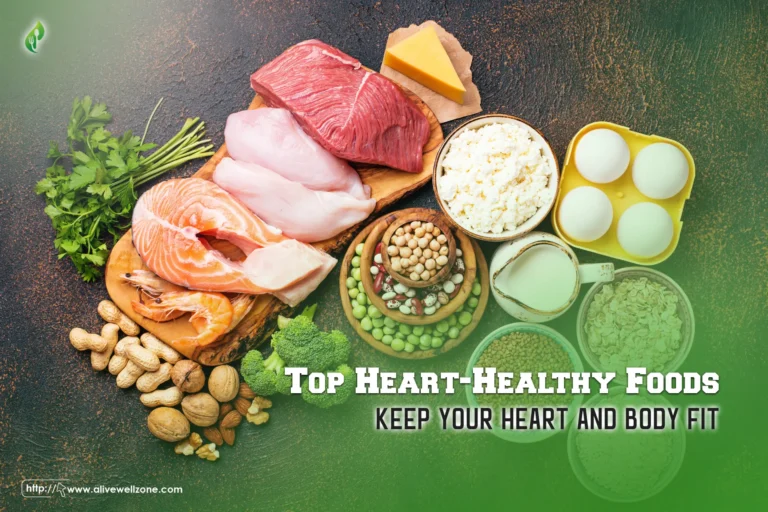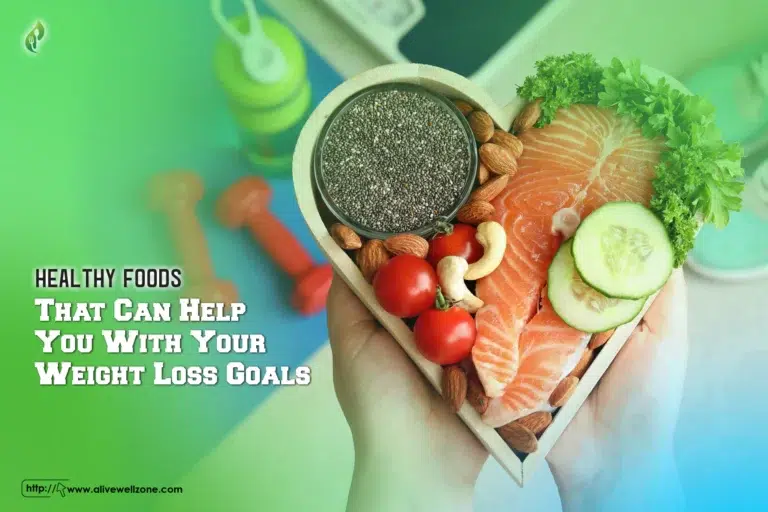
Last Updated on November 13, 2024 by Helena Akter
A September 2022 BJOG study found many women gain 2 to 4.5 pounds yearly, even with consistent diet and exercise habits. That’s why the perfect healthy food for old woman becomes pivotal while aging.
In that case, dark veggies, nuts, berries, avocados, tuna salads, black beans, fish, and chicken are top picks. And, drinking enough water is important to ensure hydration and vitality.
So without wasting any more time, let’s explore these foods in depth along with nutritional tips, required vitamins and minerals for older women.
Nutrition Tips for Older Adults
Eating healthily is crucial, especially as we age. Here are some major tips to help seniors above 65, including those in their 70s, maintain a balanced diet:
Diversity is Key
Incorporate a mix of foods from every group. It not only adds flavour but also helps in warding off ailments like hypertension, diabetes, and heart issues. Plus, you better prioritize foods that are low in added sugars, unhealthy fats, and salt.
Add More Fruits and Veggies
Whether you’re a 30, 40, or 60-year-old woman, it’s beneficial to include more fruits and vegetables in your meals. If cutting them is a task, go for pre-cut options.
Boost Your Protein
For maintaining muscle and ensuring you get adequate protein, include seafood, dairy, fortified soy products, beans, peas, and lentils in your diet plan for old age above 65.
Stay Hydrated
Drinking water helps digestion and nutrient absorption. It’s the instant energy food for old age. Plus, drinking water helps you avoid the dreadful effects of dehydration.
Most importantly, it’d be best to limit sugary beverages.
Vitamin B12 is Essential
As a healthy diet for senior women, consider foods loaded with vitamin B12, like certain cereals. If unsure, consult your doctor about a B12 supplement.
Season Smartly
Reduce salt by flavoring meals with herbs and citrus, like lemon.
Overcoming Dietary Challenges
It’s not always easy to stick to healthy food for the elderly. So, you better learn about obstacles and how to deal with them.
Remember, every age has its nutritional needs. Besides nutritious foods, it’s equally important to unhealthy foods to avoid that can hinder our health progress.
Whether you’re looking for healthy foods for a 40-year-old woman or a 70-year-old diet plan, it’s about making informed choices.
Healthy Food for Old Woman
Here’s a simple guide to nutritious meals for different times of the day —
Breakfast Options
As a senior woman, you can incorporate the following foods in your breakfast —
Berry Smoothie
Blend spinach, yogurt, and fruits, especially berries. Why berries? A 2022 study from King’s College London showed that eating about a cup of fresh cranberries daily can help prevent heart diseases.
Besides, smoothies are a delightful way to pack in nutrition. For those dealing with PCOS, here’s a specialized PCOS smoothie recipe that’s both delicious and beneficial.
Nutty Vegetable Omelet

Pair a vegetable omelet with whole-grain toast. Add some seeds and nuts for a health boost. In 2021, the University of Michigan found that while a hot dog might reduce 36 minutes of your healthy life, a serving of nuts could add 26 minutes.
Avocado Bruschetta
Avocados are not just delicious but also beneficial. A 30-year study from Harvard in 2022 revealed that people who ate at least two servings of avocado weekly had a lower risk of heart disease compared to those who rarely ate them.
Other heart healthy food options include banana split oatmeal and eggs served over kale and sweet potato grits.
Lunch
When it comes to lunch, we suggest you to include —
Black Bean and Sweet Potato Quesadillas
A cup of cooked black beans provides 15g of fiber. High-fiber diets can help lower blood sugar levels, which is especially beneficial for those with type 1 diabetes.
Tuna Salad
Tuna isn’t just tasty; it’s packed with omega-3 fatty acids that combat inflammation and reduce heart disease risks.
Chicken and Avocado Sandwich
Pair it with whole-grain bread and accompany it with quinoa and stir-fried veggies for a complete meal suitable for a diet plan for old age above 65.
Dinner
Finally, before your nap time, take the following foods for dinner.
Fish and Spinach
The American Heart Association advises eating fish twice a week for its health benefits. Spinach is an instant energy food for old age. Study shows that it has antioxidants like alpha-lipoic acid, which can lower glucose levels and boost insulin sensitivity.
Roasted Salmon with Veggies
NIH reports, that a 3-ounce serving of cooked salmon offers a significant amount of vitamin D, making it a great choice for a healthy diet for senior women.
Wholesome Chicken Dish
Combine chicken breast with roasted veggies and hummus. Add whole-wheat pasta topped with ground turkey and tomato sauce for a meal fit for a 70-year-old diet plan.
Essential Vitamins and Minerals for Seniors

As you age, you might eat less, making it harder to get all the vitamins and minerals you need. However, certain vitamins become even more crucial as you grow older.
Vitamin A
A lot of vitamin A can make you crumble your bones. In fact, the liver is packed with vitamin A, so it’s wise to limit eating liver or liver-based foods like pâté to once a week or opt for smaller portions.
Vitamin B2 (Riboflavin)
Found in dairy and packed cereals and breads, the amount you need increases after turning 70
- Women 51-70 years: 1.1mg daily
- Women over 70: 1.3mg daily
- Men 51-70 years: 1.3mg daily
- Men over 70: 1.6mg daily
Vitamin B6
These are present in whole grains, meats, veggies, and fruits, deficiencies are rare. The daily recommended intake is —
- Women over 51: 1.5mg
- Men over 51: 1.7mg
Vitamin C
Eating foods rich in vitamin C helps your body absorb iron. So, consider pairing iron-rich meals with fruits, vegetables, or a glass of fruit juice.
Moreover, citrus fruits, green veggies, peppers, tomatoes, and potatoes are all excellent sources of vitamin C.
Vitamin D
Your skin primarily produces Vitamin D, which is essential for absorbing calcium and maintaining healthy bones. It also supports muscle and possibly immune function.
As you age, your skin becomes less efficient at producing it, so your needs increase —
- 51 to 70 years: Double the amount younger adults need
- Over 70 years: Triple the amount adults under 50 need
While sunlight helps your body produce Vitamin D, it’s challenging to get enough from food alone. So, it’s beneficial for you to spend some time in the sun daily.
If you have dark skin or cover up for cultural reasons, you might need more sun exposure to produce the same amount of Vitamin D.
Iron
Your body gets all its iron from the food you eat. Meat, poultry, fish, and whole grains are rich in iron. Without enough iron, your body’s iron reserves may run low, leading to iron deficiency and, if left untreated, iron-deficiency anemia.
Iron deficiency can creep up on you, often showing no signs until anemia sets in. Symptoms of anemia can include
- Tiredness
- Dizziness
- An irregular heartbeat
- Issues with memory and focus
For seniors, low iron levels might not always be due to diet. It could indicate internal bleeding or an issue with iron absorption in the small intestine. If you experience any symptoms of anemia, it’s crucial to consult your doctor.
Calcium
Calcium is essential for strong bones and proper nerve and muscle function. Not getting enough calcium can result in osteoporosis, leading to weak bones and a higher chance of fractures. This risk is especially high for women after menopause.
Here’s how much calcium you should aim for —
- Women over 51: 1,300mg daily
- Men 51-70 years: 1,000mg daily
- Men over 70: 1,300mg daily
You can find calcium in foods like milk, yogurt, cheese, and fish with soft bones like sardines and salmon. Almonds and calcium-fortified milk are also good sources.
Folic Acid
Folic acid is beneficial for overall health as you grow older. You can find it in green vegetables, brown rice, and fortified bread and cereals.
Potassium
As you age, your kidneys may struggle to filter excess potassium from your blood. It’s best to avoid potassium supplements unless your doctor advises otherwise.
How Much Protein Do Older People Need In Their Diet?
Protein plays a crucial role in repairing cells and maintaining muscle strength. As you get older, especially after turning 70, your protein needs increase by about 20% compared to when you were younger.
Here’s how much protein you should aim for —
- Women under 70: 46g daily
- Women 70 and older: 57g daily
- Men under 70: 64g daily
- Men 70 and older: 81g daily
What Should Older Women Drink?
Your health depends on staying hydrated. It’s good to drink enough fluids to prevent constipation, confusion, and dehydration.
Don’t wait until you’re thirsty to drink. As we get older, our thirst sense diminishes. On average, women should aim for 8 cups of fluids daily, while men should target 10 cups.
While water is an excellent choice, milk, tea, soup, and coffee also count towards your daily fluid intake.
Why Hydration Matters As You Age?
Staying hydrated supports brain function aids digestion, and reduces the risk of kidney stones and urinary tract infections. As you age, several factors can increase your risk of dehydration:
- Reduced kidney function
- Not feeling thirsty as often
- Medications like diuretics and laxatives
- Avoiding drinks to limit bathroom trips due to mobility challenges
In hot weather, dehydration can make you more prone to heatstroke, especially if you’re not in the best shape and exert yourself.
Conclusion
Growing older makes it even more important to eat right. For older women, it means filling their plates with a balance of fruits, vegetables, and proteins. Vitamins and minerals, which we often hear about, genuinely play a big role in keeping us feeling good and staying strong.
Drinking enough water is another simple yet vital step. As time goes on and more research comes out, we’ll likely hear even more about the bond between food and aging.
But one thing is clear now: picking healthy food for women today can set up older women for healthier and happier days ahead. It’s a simple investment with long-term benefits.







